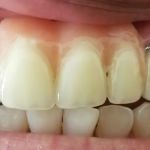Dental Health Habits to Prevent Common Oral Diseases
Maintaining optimal dental health is essential not only for a beautiful smile but also for overall health. Oral diseases, such as cavities, gum disease, and bad breath, are common yet preventable with the right dental health habits. In this article, we will explore effective strategies to maintain healthy teeth and gums, reduce the risk of common oral diseases, and improve your daily oral hygiene routine.
- 1. Importance of Brushing and Flossing Regularly
- 2. The Role of a Healthy Diet in Oral Health
- 3. How Regular Dental Checkups Help Prevent Oral Diseases
- 4. Preventing Gum Disease with Proper Care
- 5. Dealing with Sensitive Teeth and Gums
1. Importance of Brushing and Flossing Regularly
Brushing your teeth twice a day with fluoride toothpaste is one of the most effective ways to prevent cavities and gum disease. Fluoride helps to strengthen tooth enamel, making it more resistant to decay. Flossing, on the other hand, removes food particles and plaque from between your teeth, where your toothbrush can’t reach. Skipping either of these habits can lead to the buildup of plaque and tartar, which contributes to tooth decay and gum inflammation.
When brushing, ensure that you use a soft-bristled toothbrush to avoid damaging your gums. Brush for at least two minutes, focusing on all surfaces of your teeth. Also, don't forget to brush your tongue, as bacteria can accumulate there too. If you have trouble with flossing, consider using floss picks or an interdental brush for better results.
2. The Role of a Healthy Diet in Oral Health
What you eat directly impacts the health of your teeth and gums. A diet high in sugar and acidic foods can increase the risk of cavities, as sugar feeds the harmful bacteria in your mouth. It's essential to limit sugary snacks and drinks such as soda, candies, and processed foods. Instead, opt for a diet rich in vitamins and minerals that promote strong teeth and gums, such as leafy greens, dairy products, and foods high in calcium and phosphorus.
Drinking water throughout the day helps wash away food particles and neutralize acids in your mouth. Avoid snacking frequently, as constant exposure to food can increase the risk of plaque buildup. Finally, consider chewing sugar-free gum, which can help stimulate saliva production, protecting your teeth from decay.
3. How Regular Dental Checkups Help Prevent Oral Diseases
Regular dental checkups are crucial for detecting oral diseases early and preventing complications. Your dentist can spot signs of gum disease, cavities, and other issues before they become serious. For example, your dentist may perform X-rays to identify problems with your teeth that aren't visible to the naked eye, such as cavities between teeth or bone loss due to gum disease.
In addition to diagnosing issues, dental professionals can provide a professional cleaning to remove plaque and tartar buildup that may have accumulated despite regular brushing and flossing. Regular visits also give you the opportunity to ask questions and receive personalized advice about maintaining good oral hygiene.
4. Preventing Gum Disease with Proper Care
Gum disease, also known as periodontal disease, is a leading cause of tooth loss among adults. The early stages of gum disease, called gingivitis, can be reversed with proper care, but if left untreated, it can progress to more severe forms, leading to permanent damage to the gums and supporting bone structure. Preventing gum disease involves brushing your teeth regularly, flossing, and visiting your dentist for checkups and cleanings.
Another effective way to protect your gums is by quitting smoking or tobacco use. Smoking significantly increases your risk of developing gum disease and other oral health problems. Using mouthwash that targets gum health can also help reduce plaque buildup and kill bacteria in your mouth.
5. Dealing with Sensitive Teeth and Gums
If you experience discomfort when consuming hot, cold, sweet, or acidic foods and drinks, you may have sensitive teeth. Sensitivity can be caused by a variety of factors, such as gum recession, worn enamel, or cavities. If you're dealing with sensitive teeth, it's important to use toothpaste specifically designed for sensitive teeth, which helps to block pain signals to the nerves of your teeth.
Your dentist may also recommend fluoride treatments or sealants to protect exposed tooth roots and reduce sensitivity. If you suffer from gum recession, your dentist might suggest procedures to regenerate gum tissue and prevent further damage. Be mindful of not brushing your teeth too aggressively, as this can exacerbate gum recession and sensitivity.
By following these dental health habits, you can significantly reduce your risk of developing common oral diseases. Maintaining good oral hygiene, eating a balanced diet, visiting your dentist regularly, and taking care of sensitive teeth are all key to ensuring the health of your teeth and gums for years to come.
If you're looking for expert dental care and advice on how to maintain your oral health, visit Dentistry Toothtruth, where we offer personalized treatment plans tailored to your specific needs. Learn more about how to keep your smile bright and healthy!







 Rush Family Dental5.0 (161 review)
Rush Family Dental5.0 (161 review) Lafayette Hill Family Dentistry4.0 (5 review)
Lafayette Hill Family Dentistry4.0 (5 review) Steven J. Moravec, DDS, MS4.0 (189 review)
Steven J. Moravec, DDS, MS4.0 (189 review) Sunnyvale Pediatric Dentistry and Orthodontics4.0 (365 review)
Sunnyvale Pediatric Dentistry and Orthodontics4.0 (365 review) New Millennium Dental Group3.0 (30 review)
New Millennium Dental Group3.0 (30 review) By Design Dental4.0 (52 review)
By Design Dental4.0 (52 review) The Importance of Oral Health Education During Pregnancy for a Healthy Pregnancy
The Importance of Oral Health Education During Pregnancy for a Healthy Pregnancy Best Tips for Brushing Your Teeth Properly for Healthy Gums: Essential Techniques for Oral Health
Best Tips for Brushing Your Teeth Properly for Healthy Gums: Essential Techniques for Oral Health Why Skipping Dental Checkups Can Lead to Bigger Oral Health Problems
Why Skipping Dental Checkups Can Lead to Bigger Oral Health Problems Advantages of Porcelain Dental Restorations
Advantages of Porcelain Dental Restorations How Can Diabetes Cause Tooth and Gum Problems? Preventing and Managing Oral Health Issues
How Can Diabetes Cause Tooth and Gum Problems? Preventing and Managing Oral Health Issues Healthy Habits for Promoting Good Oral Health and Hygiene: Tips for a Healthy Smile
Healthy Habits for Promoting Good Oral Health and Hygiene: Tips for a Healthy Smile